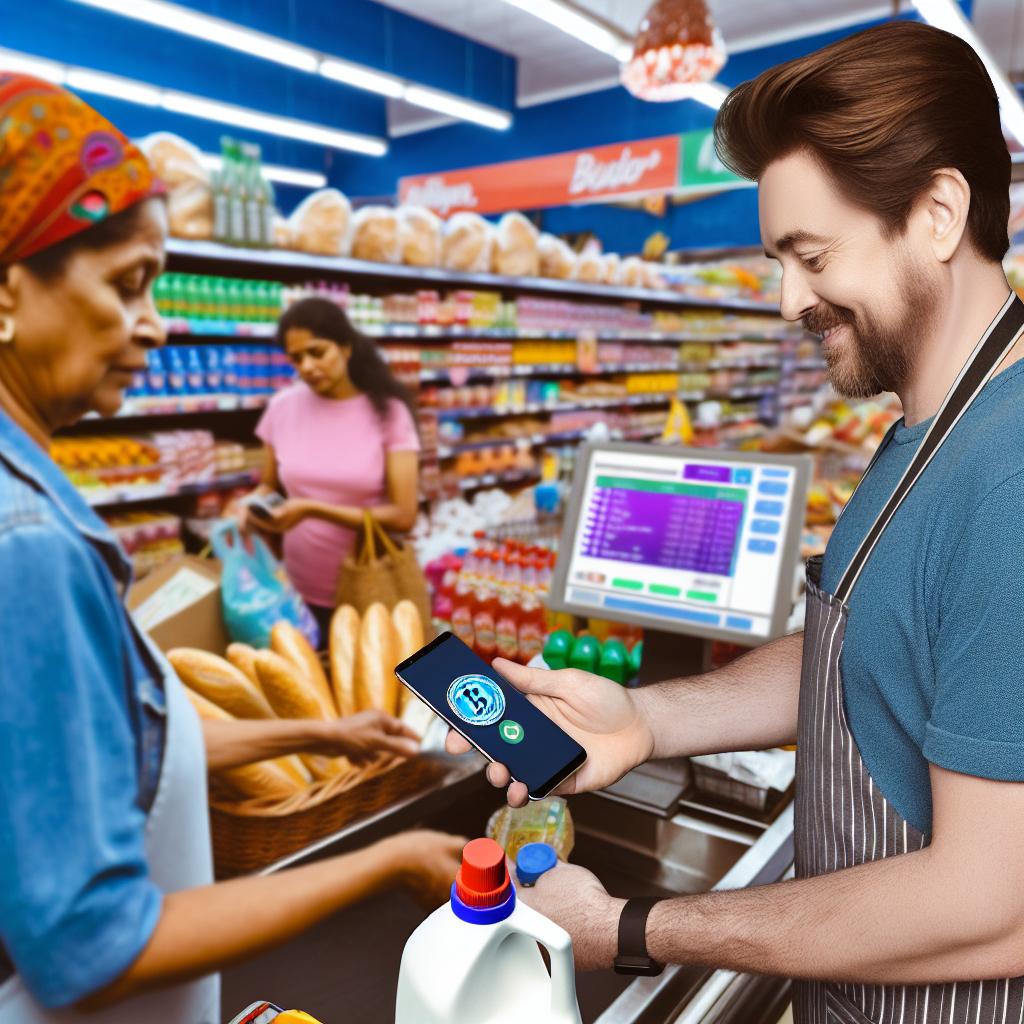Understanding Cryptocurrency for Daily Transactions
Cryptocurrency, once a niche interest largely confined to tech enthusiasts, is increasingly becoming a viable option for everyday purchases. This transformation is attributed to growing acceptance and technological advancements in the financial world. Below is a guide to help you navigate using cryptocurrency for daily transactions.
The Rise of Cryptocurrency in Retail
The adoption of cryptocurrency by retail businesses is a notable shift in how financial transactions are conducted, blending both technological innovation and consumer needs for secure and fast payment options. Cryptocurrencies, such as Bitcoin, Ethereum, and several others, have begun to gain popularity among various enterprises, ranging from large global retailers to small local businesses.
The primary reason for this adoption is the potential advantages that cryptocurrency offers over traditional payment methods. The decentralized nature of cryptocurrencies ensures transactions are both fast and secure. Moreover, blockchain technology, the backbone of cryptocurrencies, provides an extra layer of security, minimizing fraud risks and chargebacks that businesses often face with conventional payment systems.
Where Can You Spend Cryptocurrency?
Today, a myriad of locations now accept cryptocurrency as a form of payment. The popularity and systemic incorporation of digital currencies have seen an increase in the number of service providers enabling cryptocurrency transactions. Whether you are shopping online or visiting a physical store, opportunities for using cryptocurrencies are expanding.
In the digital realm, e-commerce platforms have been early adopters of cryptocurrency payments. Websites like Overstock or various travel websites are already accommodating customers who wish to use crypto for their purchases. Such platforms often integrate cryptocurrency payment gateways, allowing users to make secure payments directly from their digital wallets.
On the other hand, physical retail locations are catching up. Many now utilize point-of-sale (POS) systems and merchant services to handle cryptocurrency transactions. These systems are specifically designed to support crypto payments, ensuring a seamless and rapid transaction process akin to using traditional credit or debit cards.
For individuals eager to locate businesses that accept cryptocurrencies, resources like Coinmap provide invaluable data. Coinmap, among other services, maps out crypto-friendly businesses, allowing consumers to find and patronize establishments that embrace digital currencies.
Using Cryptocurrency Payment Apps
The integration of cryptocurrency into daily transactions is made simpler through the use of payment applications. Applications such as BitPay or Coinbase Commerce have streamlined the payment process both online and offline. These platforms function in a manner similar to digital wallets, enabling users to send and receive cryptocurrencies efficiently.
With these apps, users typically engage with payments by scanning QR codes presented by merchants or entering wallet addresses. This method not only simplifies the payment process but also ensures that transactions are completed swiftly and securely.
The ubiquitous nature of smartphones makes it convenient for consumers since managing and accessing digital wallets can be done on-the-go. As more apps continue to support cryptocurrencies, the range of places and contexts in which people can use their digital assets keeps growing.
Prepaid Crypto Debit Cards
Prepaid crypto debit cards represent another innovative solution in bridging the gap between the world of cryptocurrencies and traditional financial systems. Companies such as Wirex and Crypto.com offer these cards, providing users the ability to fund them with cryptocurrencies and convert them into traditional currencies at the point of sale.
These cards are particularly useful as they can be used at any establishment that accepts conventional debit cards. As such, they enable cryptocurrency holders to engage in everyday transactions without necessarily needing to exchange their crypto assets into fiat beforehand.
The real-time conversion of cryptocurrency to fiat currency during the transaction ensures users experience minimal friction during purchases, thus enhancing the overall flexibility and convenience of using cryptocurrencies in daily life.
Factors to Consider When Using Cryptocurrency
While the use of cryptocurrency for daily transactions offers numerous advantages, consumers should be cognizant of several factors that could impact their digital asset experience:
Volatility: The inherent volatility of cryptocurrencies is one of the primary concerns for users. Cryptocurrencies can experience rapid price fluctuations over short periods, leading to potential changes in purchasing power. This volatility necessitates a degree of caution and consideration when making purchases or holding sizeable crypto amounts.
Transaction Fees: Transaction fees in the cryptocurrency world can vary significantly, depending on the cryptocurrency in use and the network’s current congestion. Cryptocurrencies like Bitcoin, in particular, might attract higher fees during peak times. Users should evaluate these costs when planning transactions to make informed financial decisions.
Exchange Rates: As cryptocurrencies are valued against traditional fiat currencies, exchange rates play a crucial role in the final cost of purchases made using digital assets. Users should monitor current rates to optimize their spending and ensure they receive favorable conditions during exchanges.
Security Considerations
Security is paramount when dealing with cryptocurrencies. Users should be proactive in safeguarding their digital assets to prevent unauthorized access. Employing practices such as using reputable wallets, enabling two-factor authentication, and being cognizant of phishing attempts are crucial steps to maintaining security.
Transacting with recognized and verified merchants further adds a layer of confidence in the safety of crypto exchanges. Users should avoid conducting transactions over public Wi-Fi networks or on shared devices to minimize exposure to potential security breaches.
Conclusion
The gradual normalization of cryptocurrency in routine financial transactions is opening new avenues for integrating these digital assets into daily life. By leveraging the variety of available methods, such as using cryptocurrency payment apps or prepaid debit cards, consumers can seamlessly incorporate cryptocurrencies into their purchasing habits.
As cryptocurrencies continue to gain traction within the global economy, understanding the nuances of using digital currencies effectively becomes increasingly valuable. Such insights not only enhance personal finance management but also provide individuals with greater flexibility and control in their financial endeavors.

